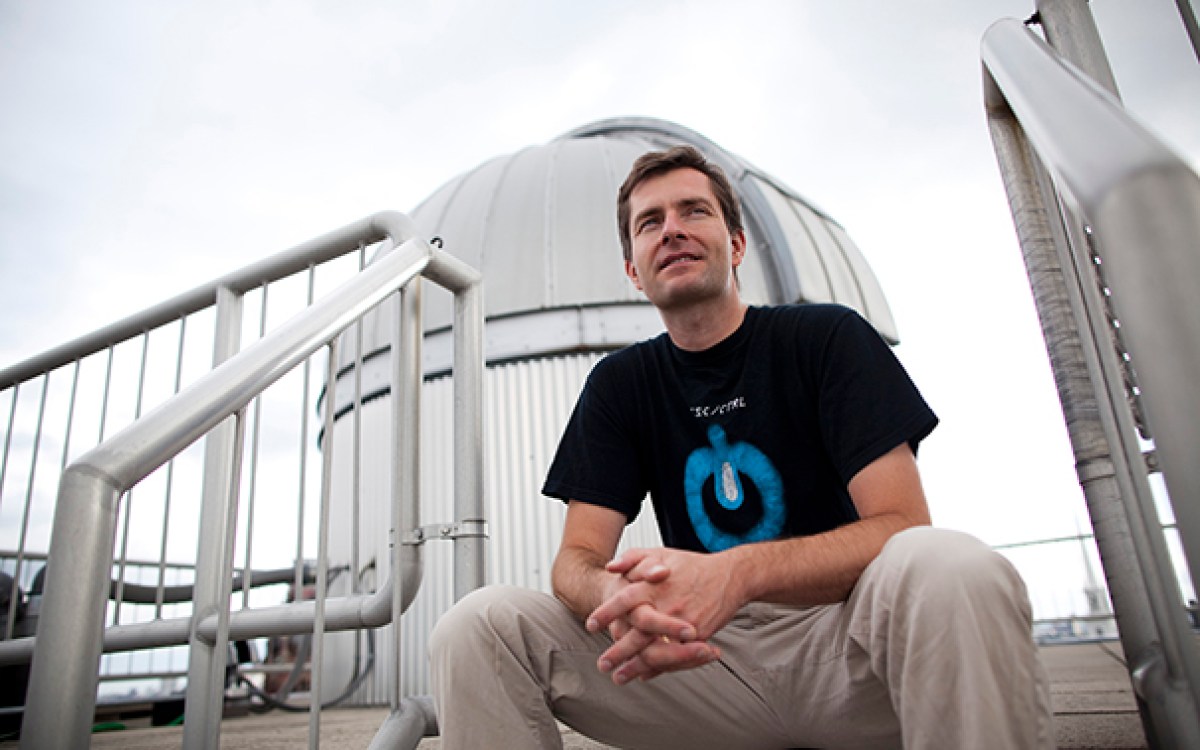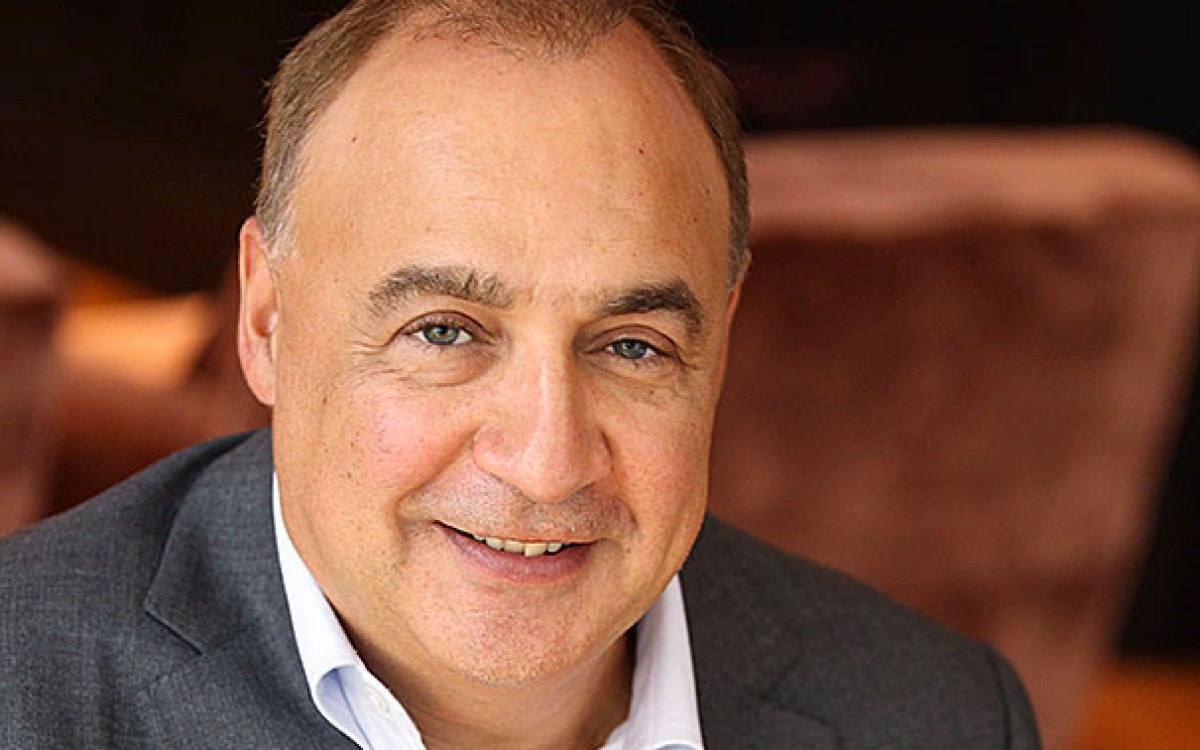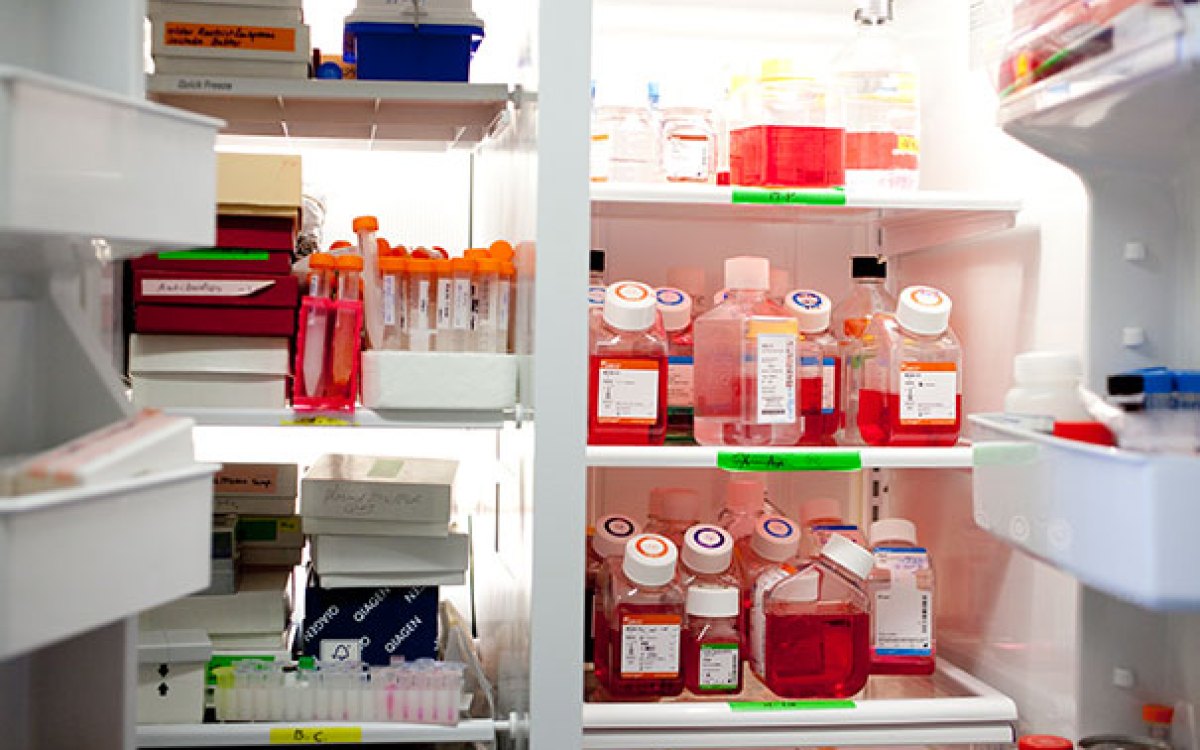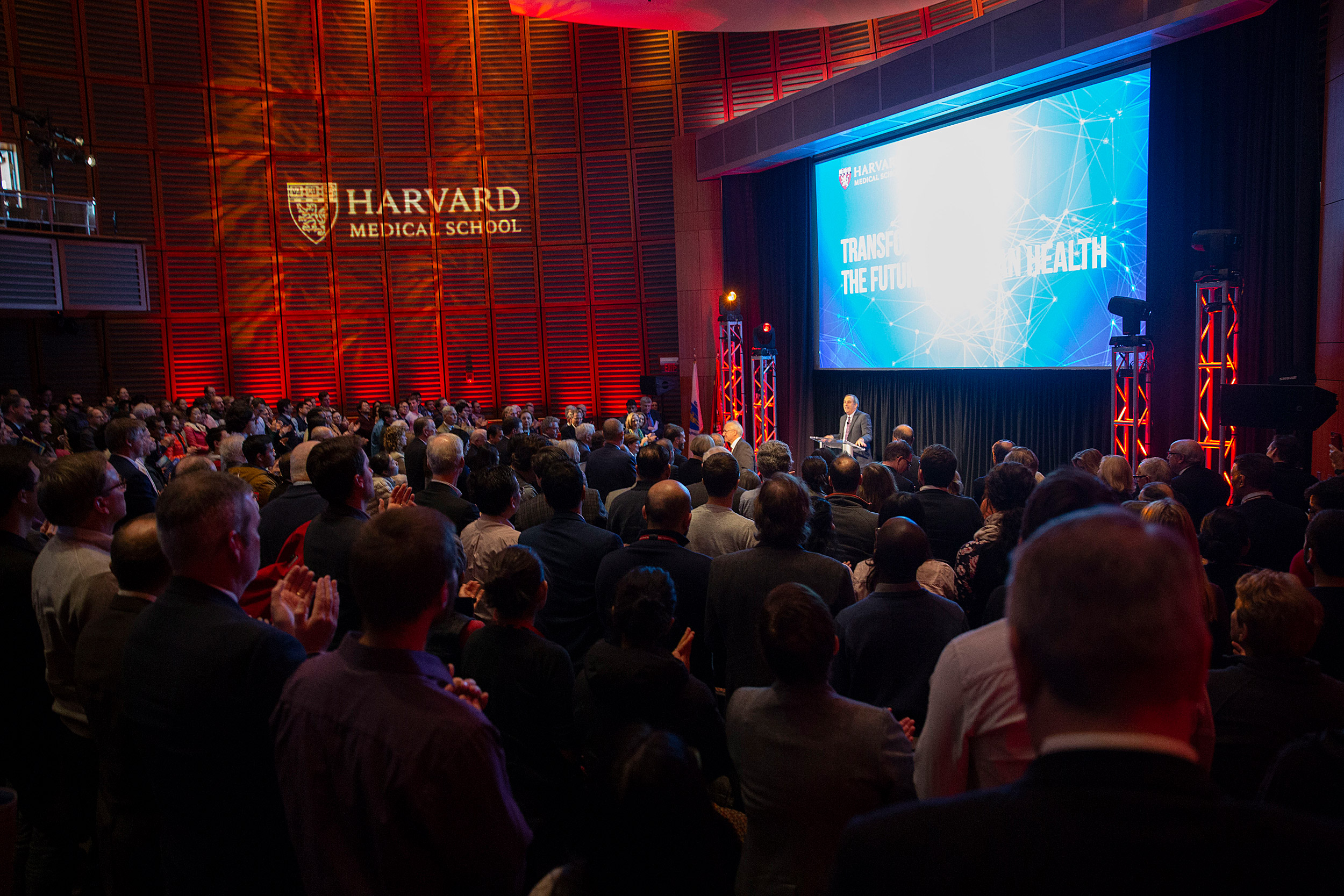
President Larry Bacow (at podium) described the Harvard Medical School gift from the Blavatnik Family Foundation as an “unprecedented act of generosity and support.”
Kris Snibbe/Harvard Staff Photographer
A gift to turn medical discoveries into treatments
Blavatnik Foundation pledges $200 million to Medical School, its largest gift ever
A foundation headed by philanthropist and businessman Len Blavatnik has pledged $200 million to Harvard Medical School (HMS), its largest gift ever, with the overarching aim of transforming new medical discoveries into patient treatments.
The gift, from the Blavatnik Family Foundation, was announced at a scientific symposium at the School on Thursday and was hailed for providing key resources at a time of enormous opportunity for medical science.
Announcing the donation, Harvard President Larry Bacow described it as an “unprecedented act of generosity and support,” and thanked Blavatnik for his faith that HMS — and the region’s broader life sciences community — can make dreams of dramatic progress in human health become reality.
“It’s one thing to dream for oneself, for one’s family and friends, even for one’s community. It’s another thing to dream for all people, to dream for a future in which more lives are improved and saved through the creation and application of knowledge through science,” Bacow said.
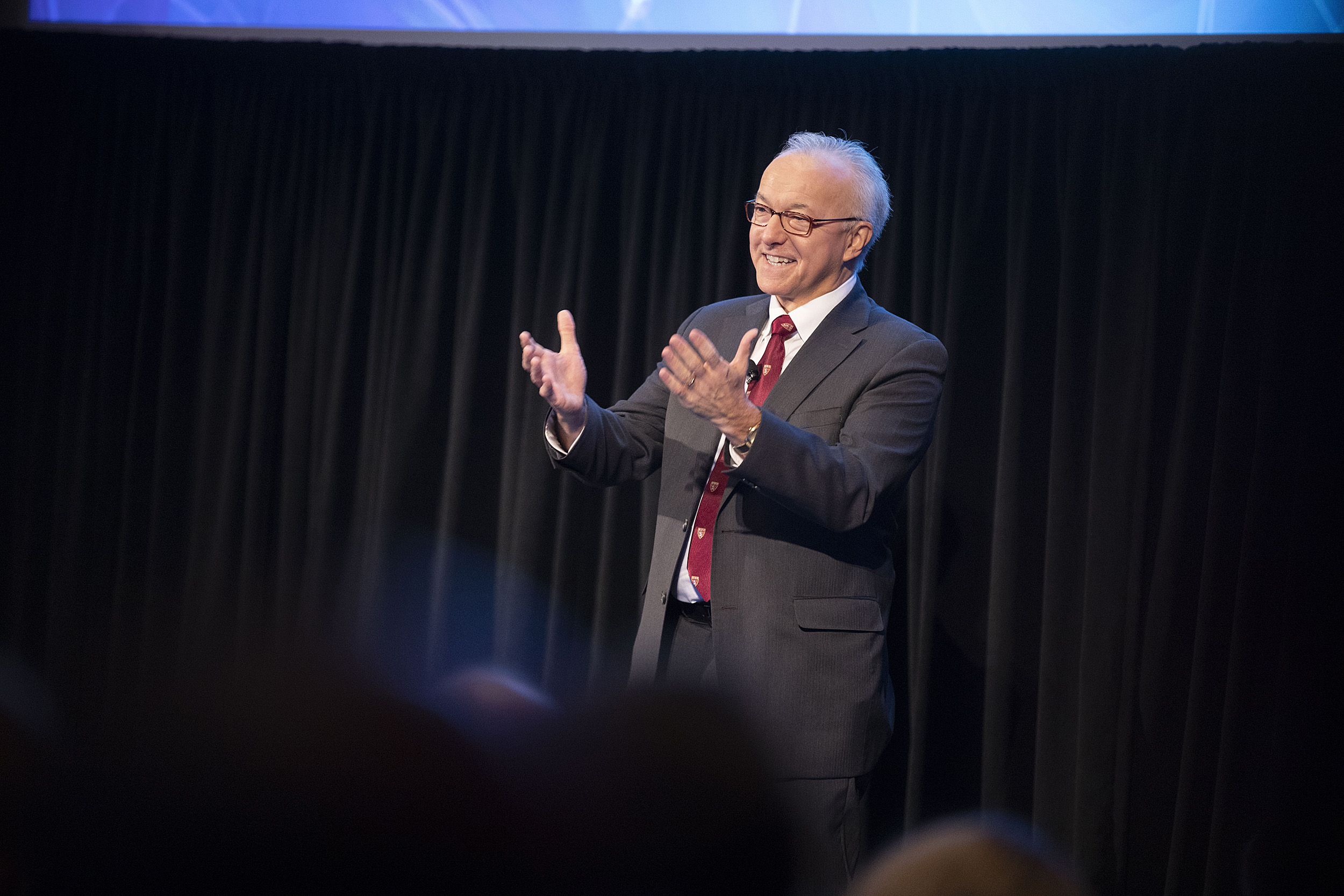
HMS Dean George Q. Daley called the donation “a transformative opportunity” for the School and said it will enable a new generation of scholars and scientists to emulate those who made key discoveries in every area from organ transplants to polio vaccines to gene therapy.
“This is who we are; this is what we do,” Daley said. “Today we are here to set the course for an even more impactful future.”
The announcement drew a constellation of Harvard leaders past and present, including Bacow, former presidents Drew Faust, and Lawrence Summers (who addressed the audience via video), as well as former HMS deans Jeffrey Flier and Joseph Martin. Blavatnik could not be present, since he had been treated for appendicitis in London and was unable to travel.
An accompanying scientific symposium on Thursday focused on the future of human health and highlighted some of the cutting-edge discoveries and fresh progress against once-intractable ailments that the gift aims to target.
Eric Lander, director of the Broad Institute of M.I.T. and Harvard, said a key pick-me-up for the region’s research environment has been the transformation of what had been a group of individually excellent institutions into a broader life sciences community. Today, he said, researchers routinely collaborate across disciplines and institutional boundaries. As biomedical science becomes more complex, that collaborative spirit will bring together researchers whose progress will depend on skills and insight from those in other fields.
“There is no biomedical community like this,” Lander said, “and we have an enormous responsibility to deliver.”
The new funding will support new initiatives and create an umbrella research organization called the Blavatnik Institute at Harvard Medical School. The initiatives will include support for emerging technologies that provide powerful new tools for researchers, support for techniques to analyze the massive data sets routinely gathered now, and funds to hire experts in artificial intelligence, machine learning, and augmented reality for data-driven advances in medical science.
Other initiatives aim to foster cross-disciplinary collaboration among researchers at HMS and its affiliated hospitals and institutions. The effort also will create the Blavatnik Harvard Life Lab at Longwood to provide collaborative workspaces for early stage, high-potential biotech and life sciences startups created by Harvard faculty, postdoctoral fellows, students, and alumni.
The panel on “Transforming the Future of Human Health” included Broad President Eric Lander (from left), Novartis CEO Vasant Narasimhan, Dana-Farber President Laurie Glimcher, and MIT Professor Susan Hockfield.
Kris Snibbe/Harvard Staff Photographer
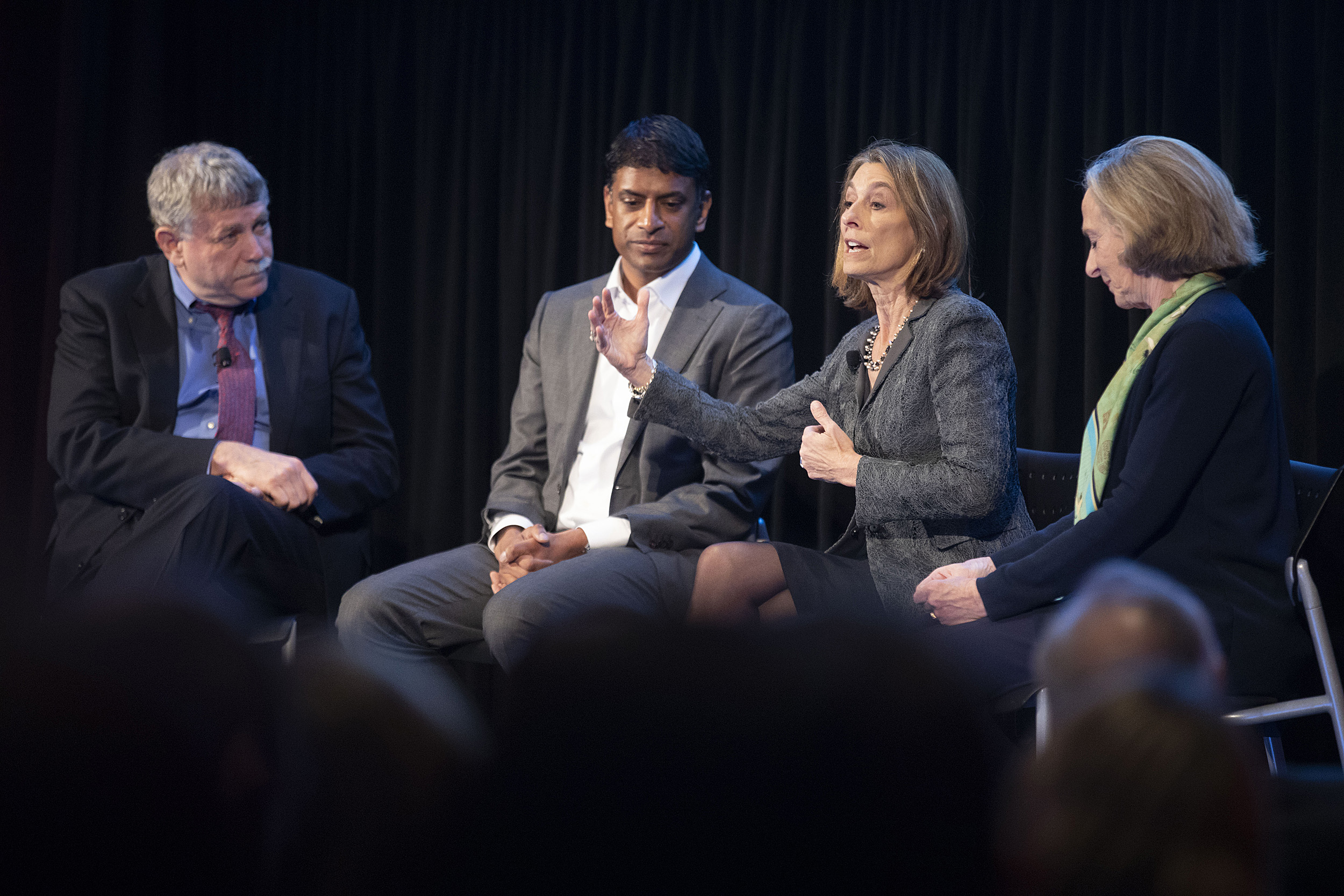
The foundation is led by Blavatnik, who graduated from Harvard Business School (HBS) with an M.B.A. in 1989, founded Access Industries, and became one of Britain’s wealthiest men. His gift to Harvard’s Office of Technology Development in 2007 created the Biomedical Accelerator Fund to help promising discoveries bridge the development gap between government-funded basic science and more advanced products that can attract funding from business. An additional gift in 2013 created the Blavatnik Biomedical Accelerator and the Blavatnik Fellowship in Life Science Entrepreneurship at HBS.
The Blavatnik family was represented at the event by Blavatnik’s brother, Alex, who made brief remarks and read a message from Len.
“It has long been my goal to support innovative, breakthrough scientific research and to expedite the translation of scientific discovery into treatments and cures to solve the most confounding biomedical challenges,” he wrote. “Harvard Medical School, with its unparalleled history of scientific achievement, creativity, and science entrepreneurship, is the ideal partner to further this dream.”
In addition to Lander, the symposium featured experts on the cutting edge of biomedical science. Called “Transforming the Future of Human Health,” the event included former M.I.T. President and Professor of Neuroscience Susan Hockfield, Dana-Farber Cancer Institute President and CEO Laurie Glimcher, Novartis CEO Vasant Narasimhan, chair of the HMS Department of Biomedical Informatics Isaac Kohane, director of genetics for the Broad’s Stanley Center for Psychiatric Research Steven McCarroll, and a student in the Harvard/M.I.T. M.D.-Ph.D. program, Rachel Wolfson.
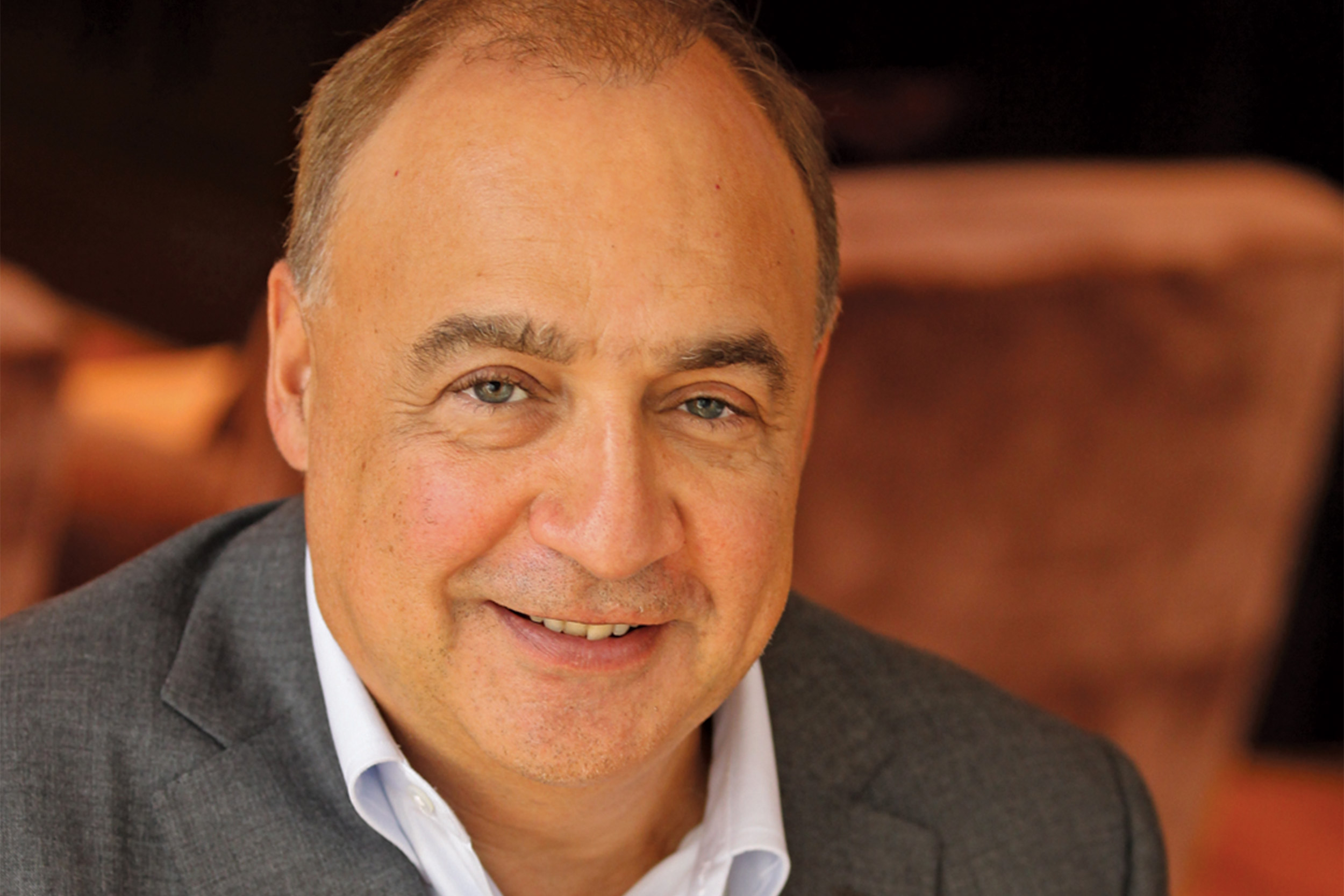
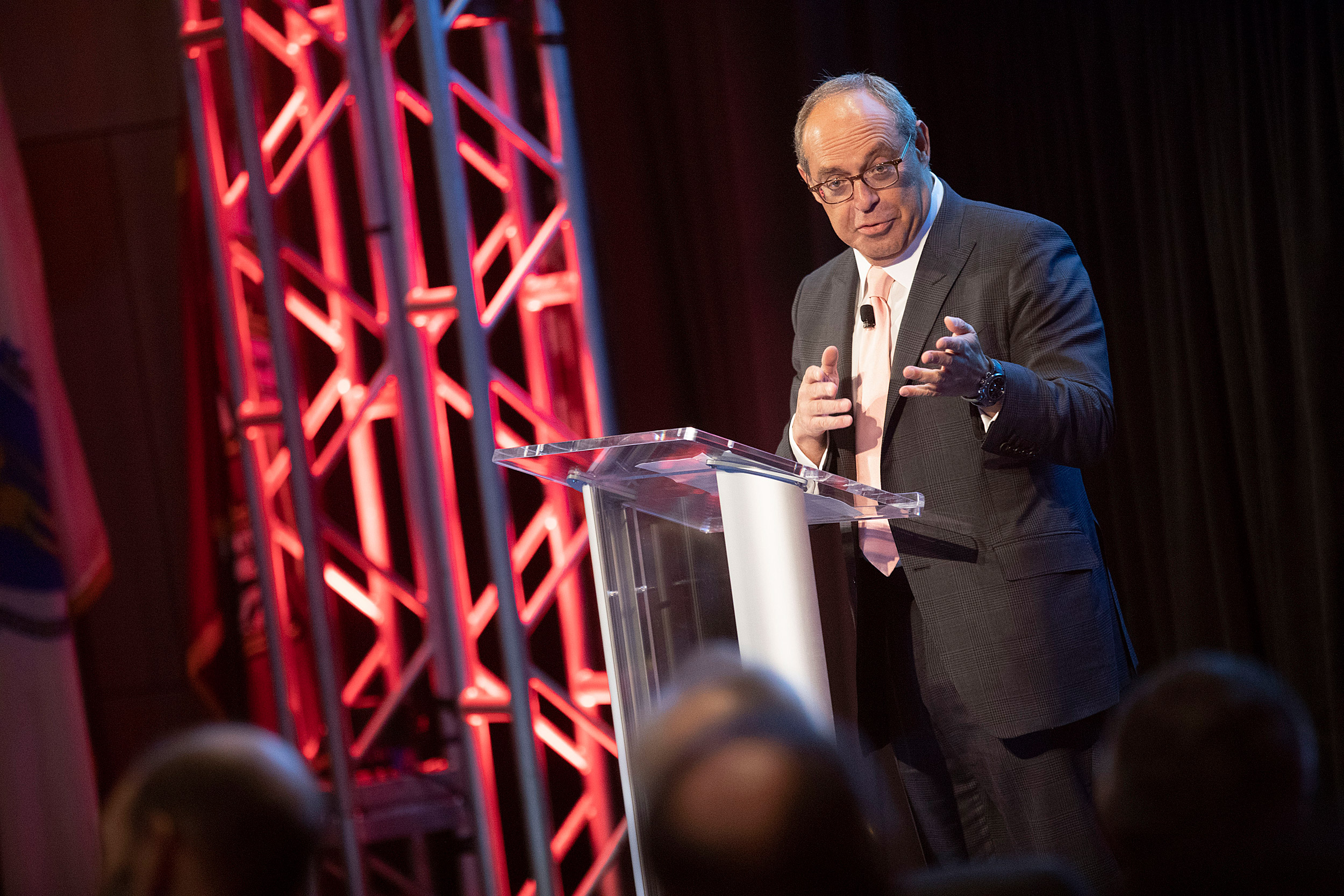
Len Blavatnik had been treated for appendicitis in London and was unable to attend the Boston event. His brother, Alex, represented the family.
Photos by Tim Bishop; Kris Snibbe/Harvard Staff Photographer
The speakers said biomedical science is on the verge of major breakthroughs fed by revolutions in recent decades in everything from genetics to computer technology to big data to precision medicine.
In cancer care alone, Glimcher said, precision medicine (which allows doctors to treat tumors according to the patient’s genetic profile) and the still-budding revolution in immunotherapy (which activates the body’s own defenses against cancer) has shifted the field.
“I do believe that five years from now the whole landscape for cancer will be changed,” Glimcher said.
The major gift also will be used to support the Harvard Cryo-Electron Microscopy Center for Structural Biology, where new technology allows scientists to visualize molecular reactions and better understand the biomolecular structures involved in disease and health. It also will enhance single-cell sequencing capabilities at HMS, which allow precision analysis of individual cell types (past analysis focused on large quantities of cells and likely overlooked rare but important cells). It will also enhance “high throughput” drug-discovery capabilities, which will allow the rapid analysis of hundreds of thousands of drug candidates to find those effective against diseases.
The donation also will help recruit scientists, including bioengineers, physicists, quantitative analysts, and computational biologists with specialized expertise to employ data-rich technology to advance artificial intelligence, machine learning, and augmented reality.



